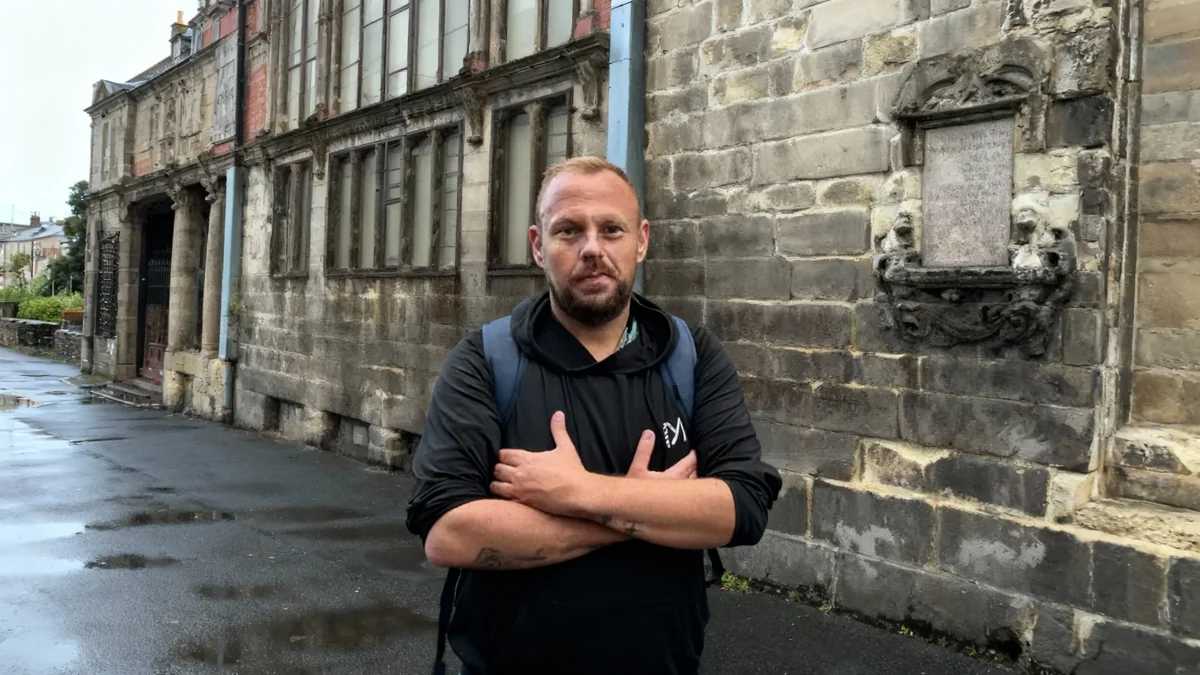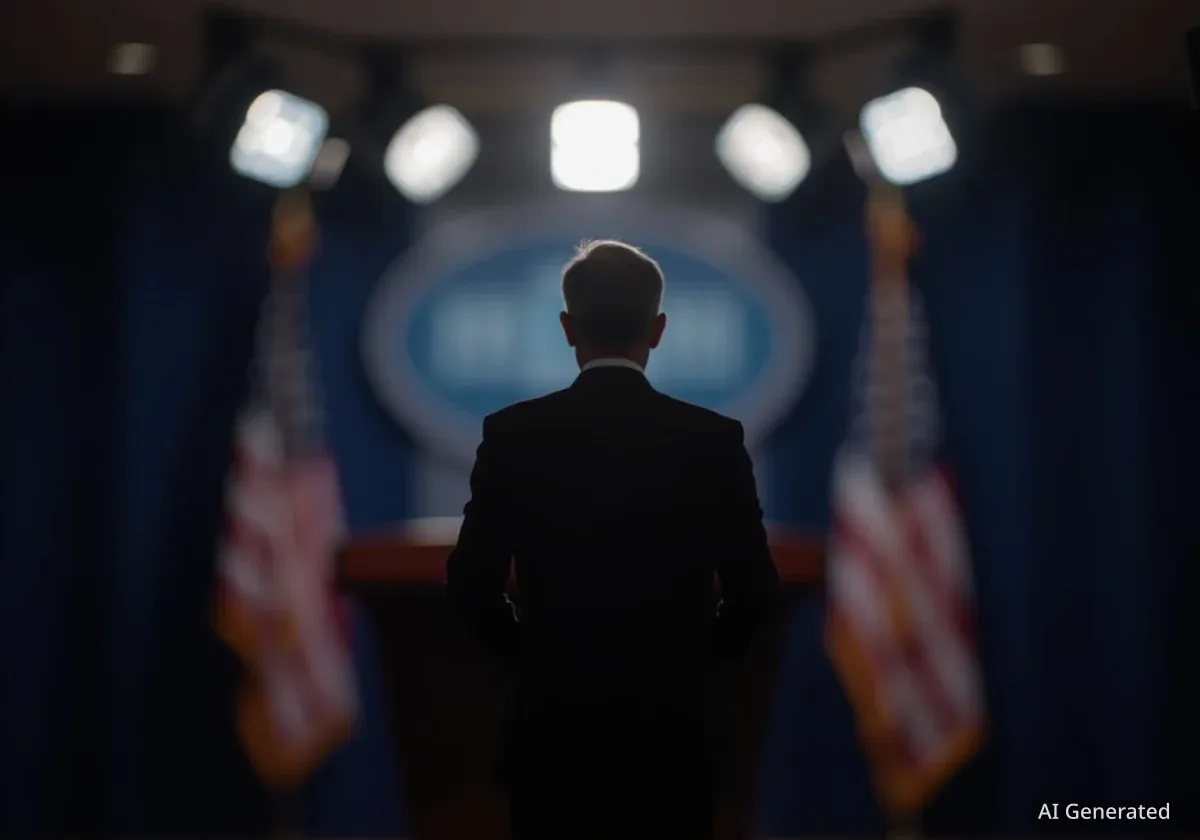The recent Labour Party Conference in Liverpool highlighted a key debate about the party's future direction and leadership. Discussions centered on electoral reform, internal party dynamics, and the challenge posed by emerging political rivals. This conference served as a crucial moment for Labour to assess its strategy ahead of upcoming elections.
Key Takeaways
- Greater Manchester Mayor Andy Burnham advocated for proportional representation and internal party reform.
- Burnham expressed concerns about a "climate of fear" within the Labour Party hindering open debate.
- Sir Keir Starmer delivered a speech outlining his vision for a "new country" and addressed the rise of Reform UK.
- Leadership speculation around Burnham ultimately subsided, with him endorsing Starmer.
- Labour faces significant challenges from Reform UK, as indicated by recent polling data.
Andy Burnham's Call for Change
Andy Burnham, the Mayor of Greater Manchester, became a focal point at the Labour Party Conference in Liverpool. His arrival at a fringe event on electoral reform on Sunday evening drew considerable media attention. Mr. Burnham, who originates from Merseyside, used the platform to advocate for significant changes within the party.
During his speech, Mr. Burnham emphasized the importance of proportional representation (PR). He suggested that a shift in the voting system could enable a new style of politics. This, he argued, would align with his concept of 'aspirational socialism'.
"There's nothing more unstoppable than an idea whose time has come," Andy Burnham stated, a comment widely interpreted in the context of broader party reform.
Beyond electoral reform, the 55-year-old mayor called for Labour to demonstrate greater bravery. He urged the party to implement changes in its operational methods. His remarks sparked discussions about the party's internal culture and its approach to dissenting voices.
Fact: Electoral Reform
Proportional representation (PR) systems aim to ensure that the number of seats a party wins in an election is proportional to the percentage of votes it receives. This differs from 'first-past-the-post' systems, where the candidate with the most votes in each constituency wins.
Concerns Over Internal Party Climate
Mr. Burnham voiced concerns regarding the internal atmosphere within the Labour Party. He highlighted what he described as a "climate of fear" that he believed was stifling open debate. This criticism resonated with some members who felt that internal discussions were being suppressed.
He specifically referenced instances where party members faced suspension for minor actions, such as liking a tweet from another political party. He also mentioned a Member of Parliament losing the whip for attempting to protect disability benefits. These examples, he argued, indicated a closing down of debate.
"How can you have an open debate about all of those things if there's too much of a climate of fear within our party and the way the party is being run?" he questioned the audience. His comments received several rounds of applause, indicating support for his stance among attendees.
Background: Leadership Speculation
Leading up to the conference, speculation about Andy Burnham potentially challenging Sir Keir Starmer for leadership had been widespread. Mr. Burnham had given interviews in national publications where he criticized the current administration and presented his own vision for the country.
Vision for Structural Change
Mr. Burnham also outlined a broader vision for structural changes across the country. He argued that electoral reform would facilitate these necessary shifts. He pointed to a loss of control over essential costs, both for individuals and the nation as a whole.
He attributed this to the privatization of key services in the 1980s. According to Mr. Burnham, people are currently overpaying for fundamental services like water, housing, energy, and transport. He asserted that the country itself is incurring excessive costs for these essentials.
"When you have a benefits system that is chasing rents in the private rented sector, that's what I mean about losing control of your costs," he explained. His remarks were met with strong approval from the audience, who cheered and applauded his proposals.
His proposed solution involved a proportional system. This, he suggested, would allow political parties to collaborate more effectively. They could then establish a long-term strategy for rebuilding basic infrastructure and constructing needed council and social homes over a decade.
Sir Keir Starmer's Conference Speech
Despite the initial focus on Andy Burnham, the leadership discussion eventually subsided. Mr. Burnham publicly stated his support for Sir Keir Starmer, confirming that Starmer was the right person to lead the party. This statement helped to dampen the earlier speculation.
On Tuesday, Sir Keir Starmer delivered his main conference speech from the stage in the Liverpool Exhibition Centre. Many attendees regarded this as his strongest conference address to date. He pledged to confront racism and those who seek to create division within Britain.
Sir Keir used his speech to articulate his vision for a "new country." He described this as a "land of dignity and respect." A significant portion of his address was dedicated to addressing the rise of Reform UK, a right-wing party led by Nigel Farage.
- Sir Keir Starmer's speech aimed to unify the party.
- He presented Labour as representing a "tolerant, decent, respectful Britain."
- The speech highlighted the party's focus on key elections in Scotland, Wales, and English counties next year.
The Challenge of Reform UK
Labour clearly views Reform UK as a major electoral competitor. Recent polls have shown Nigel Farage's party gaining significant ground, even reaching a position where a Reform UK government could be a near certainty if an election were held immediately. This represents a remarkable shift in the political landscape.
Sir Keir Starmer directly criticized Mr. Farage, suggesting he "doesn't like Britain." He challenged Reform UK's policies and overall approach. Starmer framed the upcoming political contest as a "fight for the soul of our country."
The first year or so of Sir Keir's leadership has seen various challenges. His popularity among the public, according to polls, has not been consistently strong. It remains uncertain whether his conference speech will significantly alter these public perceptions.
Poll Data: Reform UK's Rise
A YouGov MRP poll conducted before the conference indicated that Reform UK was in a strong position, potentially within reach of a majority. This highlights the significant electoral threat they pose to Labour.
Continuing Leadership Questions
Despite Mr. Burnham's public endorsement, the question of Labour's long-term leadership is likely to persist. The party faces the task of consolidating support and effectively countering the challenge from Reform UK. This will be critical for success in the upcoming batch of elections.
Mr. Burnham had explained his motivations for speaking out at the fringe event. He stated he aimed to initiate a debate for the betterment of the party. His goal was to enhance Labour's chances of defeating Reform UK in future electoral contests.
"I am speaking out for the thousands of councillors here at this conference who are worried about going to those doorsteps next May... I’m speaking out for the millions of good people around Britain who want a more hopeful direction for the country," Mayor Burnham affirmed.
He expressed belief that Labour could achieve its goals. "We can make this government work, we can find that more hopeful direction and we can win again at the next general election," he concluded. The conference underscored that Labour has considerable strategic thinking to do to secure future electoral victories, particularly if Sir Keir Starmer's public appeal does not improve.





